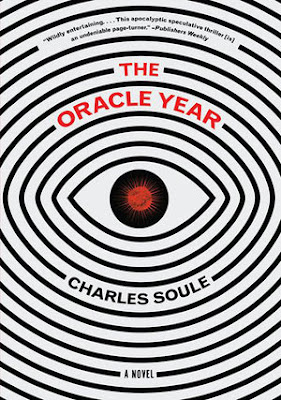BOOK REVIEW: 'The Oracle Year' Explores a Different Kind of Superhero [Preview]
Thoroughly average Will Dando wakes up one morning with 108 predictions in his head that turn out to be true. The Site, where Will shares his premonitions as the Oracle, becomes a sensation, sweeping the nation (and the entire world), and soon enough, everyone with a stake in the game wants a piece of the pie. As a less-than-successful musician living in New York City, Will, taking advice from Hamza, his financially-minded best friend, agrees that the next logical step is to monetize the Site. But it turns out that telling investment firms about the future cold snap in Florida has infinitely cascading effects, working like a Rube-Goldberg machine or Lorenz's butterfly to create consequences neither Will nor Hamza could have foreseen. The leaders of the world's major religions respond with alarm as they see their power and influence waning on a daily basis; charlatans and warlords gain followers and prestige by pretending that they are, in fact, the Oracle; rallies for and protests against the Oracle turn into destructive riots.
The Oracle Year, Charles Soule's debut novel, starts with an incredibly promising premise and, for the most part, that promise is borne out in the rest of the narrative. (Although beginning the book with Will lusting over a random girl in a bar who promises to sleep with him if the Jets win doesn't exactly put it on the right foot.) More driven by the propulsive plot than by particularly developed characters, The Oracle Year doesn't just focus on Will and Hamza (and Hamza's wife Miko), but jumps around the United States to delve into how the appearance of the Oracle affects different aspects of American life, allowing Soule to make wryly hilarious assessments of American institutions. For journalist Leigh Shore, the Oracle is her think-piece ticket to the big leagues. For hypocritical preacher Hosiah Branson, the Oracle is the ultimate enemy--not to God, mind you, but to his influence on American government.
You can read more at PopMatters!
You can read more at PopMatters!

Comments
Post a Comment